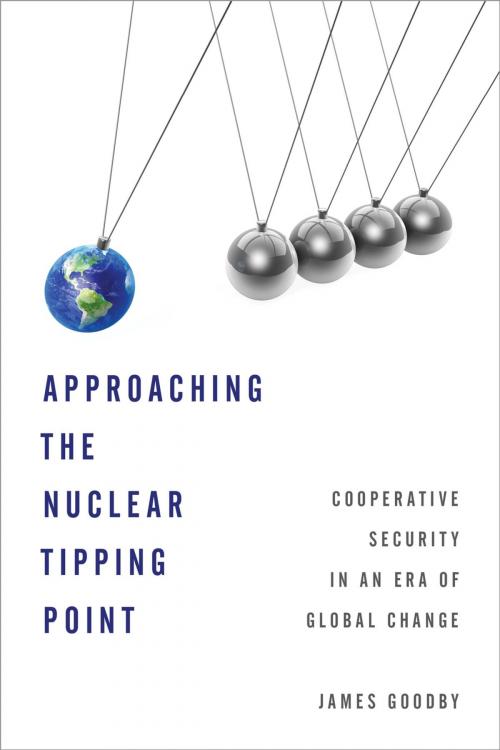Approaching the Nuclear Tipping Point
Cooperative Security in an Era of Global Change
Nonfiction, Social & Cultural Studies, Political Science, Politics, Arms Control, International, International Security| Author: | James E. Goodby | ISBN: | 9781442265721 |
| Publisher: | Rowman & Littlefield Publishers | Publication: | August 25, 2017 |
| Imprint: | Rowman & Littlefield Publishers | Language: | English |
| Author: | James E. Goodby |
| ISBN: | 9781442265721 |
| Publisher: | Rowman & Littlefield Publishers |
| Publication: | August 25, 2017 |
| Imprint: | Rowman & Littlefield Publishers |
| Language: | English |
Globalization and technology have created new challenges to national governments. As a result, they now must share power with other entities, such as regional and global organizations or large private economic units. In addition, citizens in most parts of the world have been empowered by the ability to acquire and disseminate information instantly. However this has not led to the type of international cooperation essential to deal with existential threats. Whether governments can find ways to cooperate in the face of looming threats to the survival of human society and our environment has become one of the defining issues of our age. A struggle between renewed nationalism and the rise of a truly global society is underway, but neither global nor regional institutions have acquired the skills and authority needed to meet existential threats, such as nuclear proliferation. Arms control efforts may have reduced the excesses of the Cold War, but concepts and methodologies for dealing with the nuclear menace have not kept up with global change. In addition, governments have shown surprisingly little interest in finding new ways to manage or eliminate global and regional competition in acquiring more or better nuclear weapons systems. This book explains why nuclear weapons still present existential dangers to humanity and why engagement by the United States with all states possessing nuclear weapons remains necessary to forestall a global catastrophe. The terms of engagement, however, will have to be different than during the Cold War. Technology is developing rapidly, greatly empowering individuals, groups, and nations. This can and should be a positive development, improving health, welfare, and quality of life for all, but it can also be used for enormous destruction. This book reaches beyond the military issues of arms control to analyze the impact on international security of changes in the international system and defines a unique cooperative security agenda.
Globalization and technology have created new challenges to national governments. As a result, they now must share power with other entities, such as regional and global organizations or large private economic units. In addition, citizens in most parts of the world have been empowered by the ability to acquire and disseminate information instantly. However this has not led to the type of international cooperation essential to deal with existential threats. Whether governments can find ways to cooperate in the face of looming threats to the survival of human society and our environment has become one of the defining issues of our age. A struggle between renewed nationalism and the rise of a truly global society is underway, but neither global nor regional institutions have acquired the skills and authority needed to meet existential threats, such as nuclear proliferation. Arms control efforts may have reduced the excesses of the Cold War, but concepts and methodologies for dealing with the nuclear menace have not kept up with global change. In addition, governments have shown surprisingly little interest in finding new ways to manage or eliminate global and regional competition in acquiring more or better nuclear weapons systems. This book explains why nuclear weapons still present existential dangers to humanity and why engagement by the United States with all states possessing nuclear weapons remains necessary to forestall a global catastrophe. The terms of engagement, however, will have to be different than during the Cold War. Technology is developing rapidly, greatly empowering individuals, groups, and nations. This can and should be a positive development, improving health, welfare, and quality of life for all, but it can also be used for enormous destruction. This book reaches beyond the military issues of arms control to analyze the impact on international security of changes in the international system and defines a unique cooperative security agenda.















